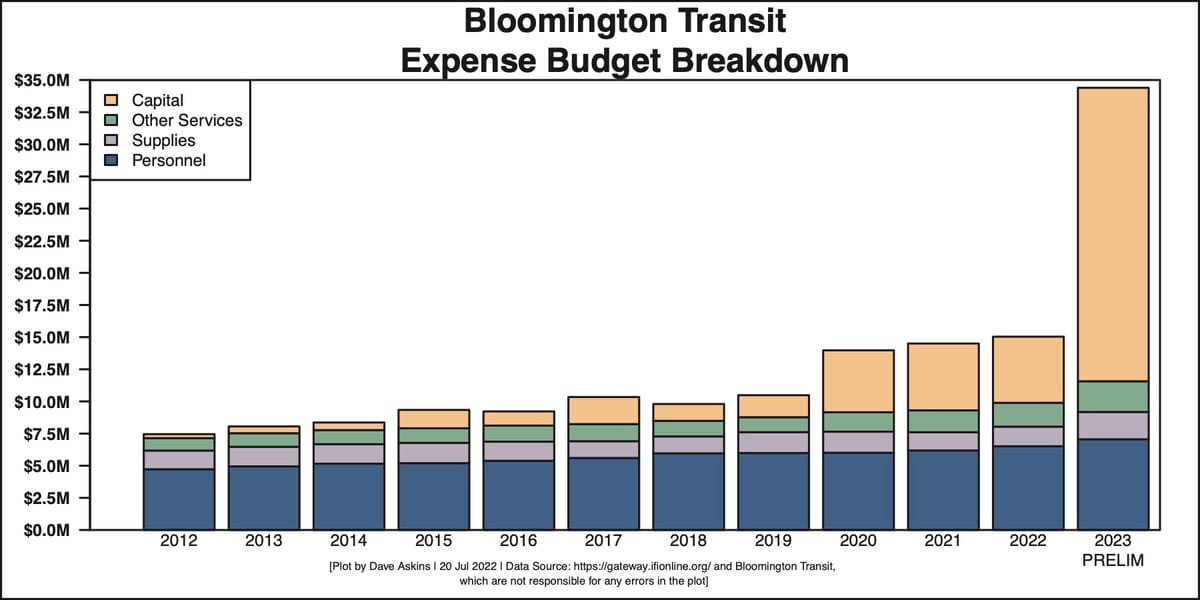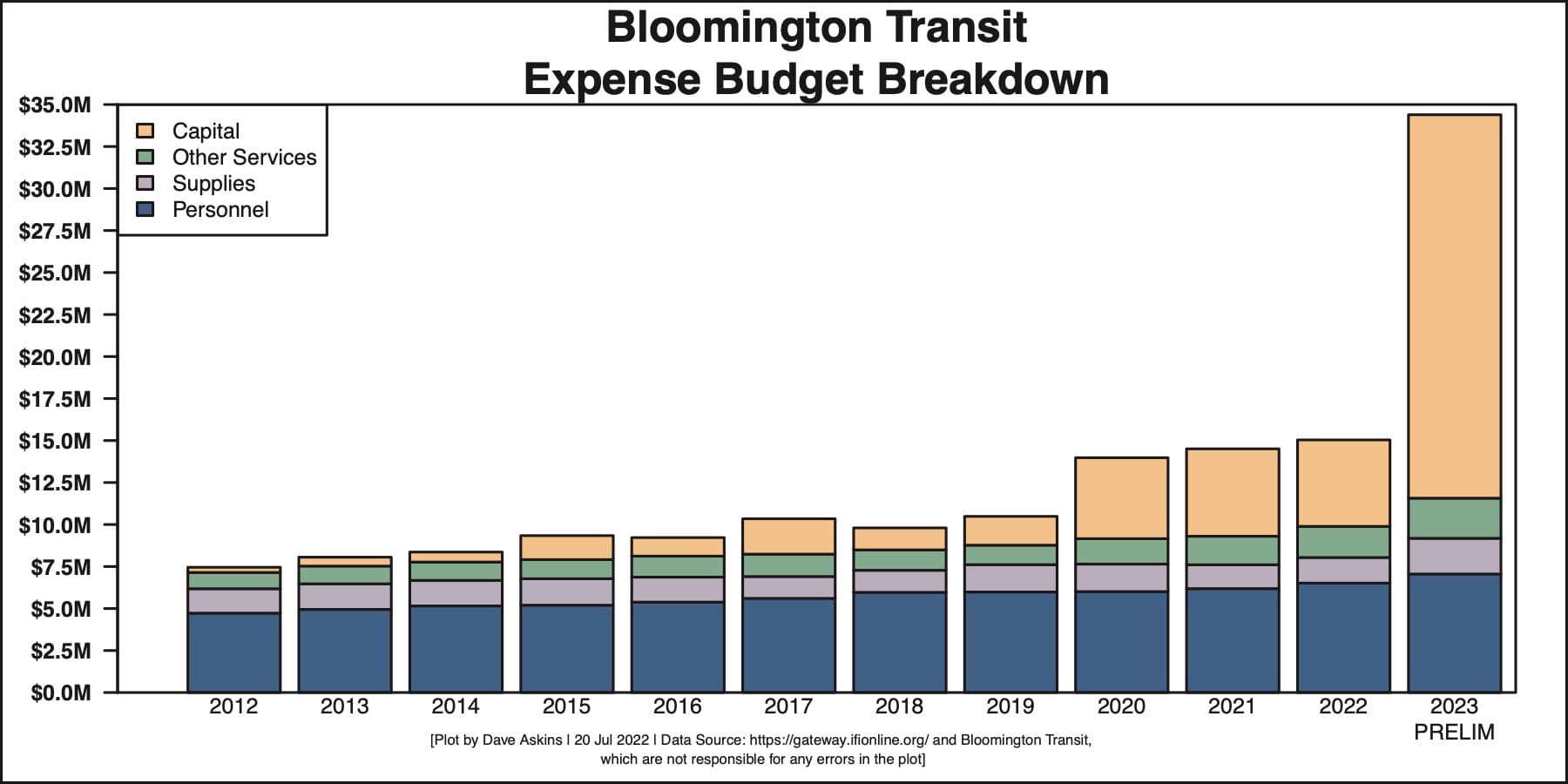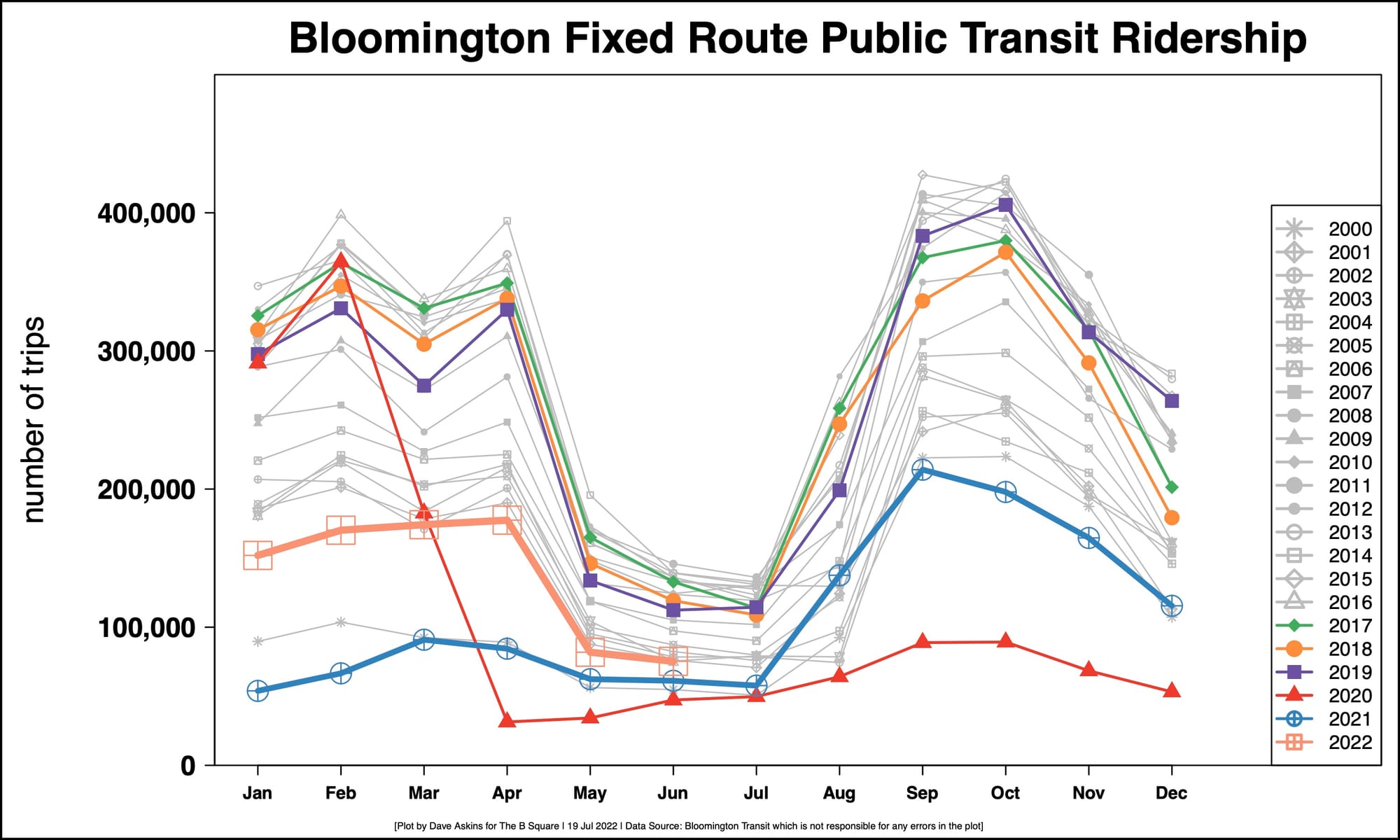Booming Bloomington Transit budget in 2023: Will more than double, from $15M to $34M



The Bloomington city council’s approval of a local income tax increase earlier this year, which is supposed to earmark about $4 million a year to support public transit, is already reflected in the first draft of Bloomington Transit’s 2023 budget.
Bloomington Transit board members reviewed the draft budget at their regular meeting on Tuesday.
The $34 million that is proposed to be spent in 2023 is more than double the $15 million approved for this year’s budget.
Most of the increase is due to the capital cost of buying 18 new buses—four replacements, eight for expanded service, and six for increased frequency. All of those buses would be battery-electric vehicles.
Some of the increase is due to factors that are not unique to Bloomington. The line item for fuel, in the supplies category, will be increasing from $877,500 to $1,472,500. Right now, diesel fuel costs $4.30 per gallon. That stacks up against the 2022 budgeted amount of $2.75 per gallon. So given the market uncertainty, the draft 2023 budget has allowed $5.25 per gallon for diesel fuel.
Two key questions came from BT board member Kent McDaniel, who on Wednesday was re-appointed to the board by the Bloomington city council: How will BT pay for all those buses, and where will they be stored?
BT general manager John Connell noted that the 80-percent federal match for the bus acquisitions is included in the budgeted amounts. For the whole budget, BT anticipates getting about $20 million in revenue from the feds, for capital and operational expenses. That compares to $8.5 million last year.
As far as where the new buses will be stored, Connell said this year’s budget includes $250,000 to hire a consultant to assist with land acquisition—consistent with the result of an alternative fuel infrastructure study.
BT’s fleet already includes some battery-electric buses, and all 18 of the planned new buses will be battery electric, which probably in any case means buying additional land to set up charging stations. “We need a real estate expert to come in and help us navigate through that process,” Connell said.
The draft 2023 budget depends on $3.8 million in local income tax (LIT) revenue from the city of Bloomington, made possible by the city council’s approval of a tax increase earlier this year. Connell told the board that he is working on getting the interlocal agreement hammered out between Bloomington Transit and the city of Bloomington, which will establish a long-term commitment of LIT revenue.
In addition to the 18 new fixed-route buses, the draft 2023 budget includes some additional vehicles that BT could use to implement a micro-transit, on-demand service for late-night hours. Even though BT has an eye on eventually offering an in-house micro-transit service, BT is currently running a pilot program through Uber and Lyft.
About the BT Late Nite pilot using Uber/Lyft, the staff memo included in the board’s meeting information packet states: “ Ridership has been lower than anticipated but we feel the program is achieving the goal of providing the safety net for traditional fixed route riders who lost bus service due to the reduction of late night hours.”
At Tuesday’s board meeting, BT planning and special projects manager Zac Hunec gave the board some specific numbers on the pilot microtransit program: For the relevant time period (after 9 p.m.), the average number of rides given by BT per night has dropped from 125 to just 8 rides. The average cost per ride during that period has been $10.70 for the Uber/Lyft pilot compared to $14.38 when BT runs fixed route service.
Connell told the board, “We wanted a conservative start, just to make sure everything was going to work according to plan.” He continued, “I think now we need to advertise a little more aggressively, and let people know it’s out there.”




Comments ()